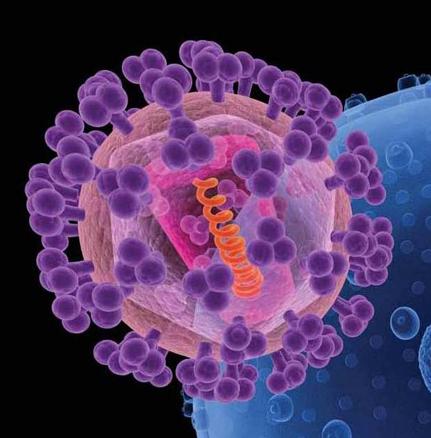Vir Biotechnology, Inc., a clinical-stage immunology company focused on treating and preventing serious infectious diseases, announced that the first patient was dosed in late December 2020 in a Phase 1 clinical trial of VIR-1111, an investigational human immunodeficiency virus (HIV) T cell vaccine.

Image/National Cancer Institute
VIR-1111 is a proof-of-concept vaccine designed to test the hypothesis that this new approach can elicit potentially protective immune responses that differ from other HIV vaccines. VIR-1111 is uniquely designed to elicit abundant and durable CD4 and CD8 T cells that are programmed to attack virus-infected cells. This trial is being conducted in collaboration with Oregon Health & Science University’s (OHSU) Vaccine and Gene Therapy Institute with support from the Bill & Melinda Gates Foundation.
Follow the podcast, Outbreak News Interviews on Spotify
“We are pleased to have initiated the first Phase 1 trial to evaluate our T cell platform, which explores the potential for immune-programmed vaccines to treat and prevent serious infectious diseases like HIV,” said Herbert “Skip” Virgin, M.D., Ph.D., chief scientific officer of Vir. “If observed, a programmed immune response could be a significant step forward in the fight against HIV and in the field of vaccines, with ramifications that could extend to other challenging areas like cancer immunotherapy.”
The randomized, placebo-controlled, Phase 1 clinical trial is evaluating the safety and immunogenicity (ability to induce an immune response) of VIR-1111. The trial is enrolling healthy adults (ages 18 to 50) who are considered to be at low risk of HIV infection and who were previously infected with human cytomegalovirus (HCMV). They will receive two doses of VIR-1111 or placebo given by subcutaneous injection and be assessed for safety, reactogenicity (common, expected adverse reactions following vaccination, such as pain and redness), tolerability and immunogenicity.
The viral vector technology that will be used in this trial was developed in a collaboration between Vir scientists and a team of OHSU scientists led by Louis Picker, M.D., and Klaus Frueh, Ph.D.
“Along with the many OHSU investigators who worked on this project over the years, we are very excited that this new vaccine platform is being evaluated in a clinical trial,” Drs. Picker and Frueh said. “This marks the first time that this new type of vaccine is being tested in humans. If successful, this approach could provide an entirely new set of tools for vaccine development.”
- Chile reports 2nd UK variant of COVID-19 case, Legislators introduce bill to make vaccination mandatory
- Thailand reports 340 Streptococcus suis cases in 2020
- Australian officials warn of Naegleria fowleri risks with recreational water users
- New York reports UK strain of COVID-19 in Saratoga Springs
- Brazil influenza A(H1N2) variant virus in Paraná: WHO details
- India reports 38 cases of the new strain of coronavirus from the U.K.
- Chlorhexidine Gluconate Oral Rinse recalled due to Burkholderia lata contamination risk
- Leyte: 3 dead from puffer fish poisoning


